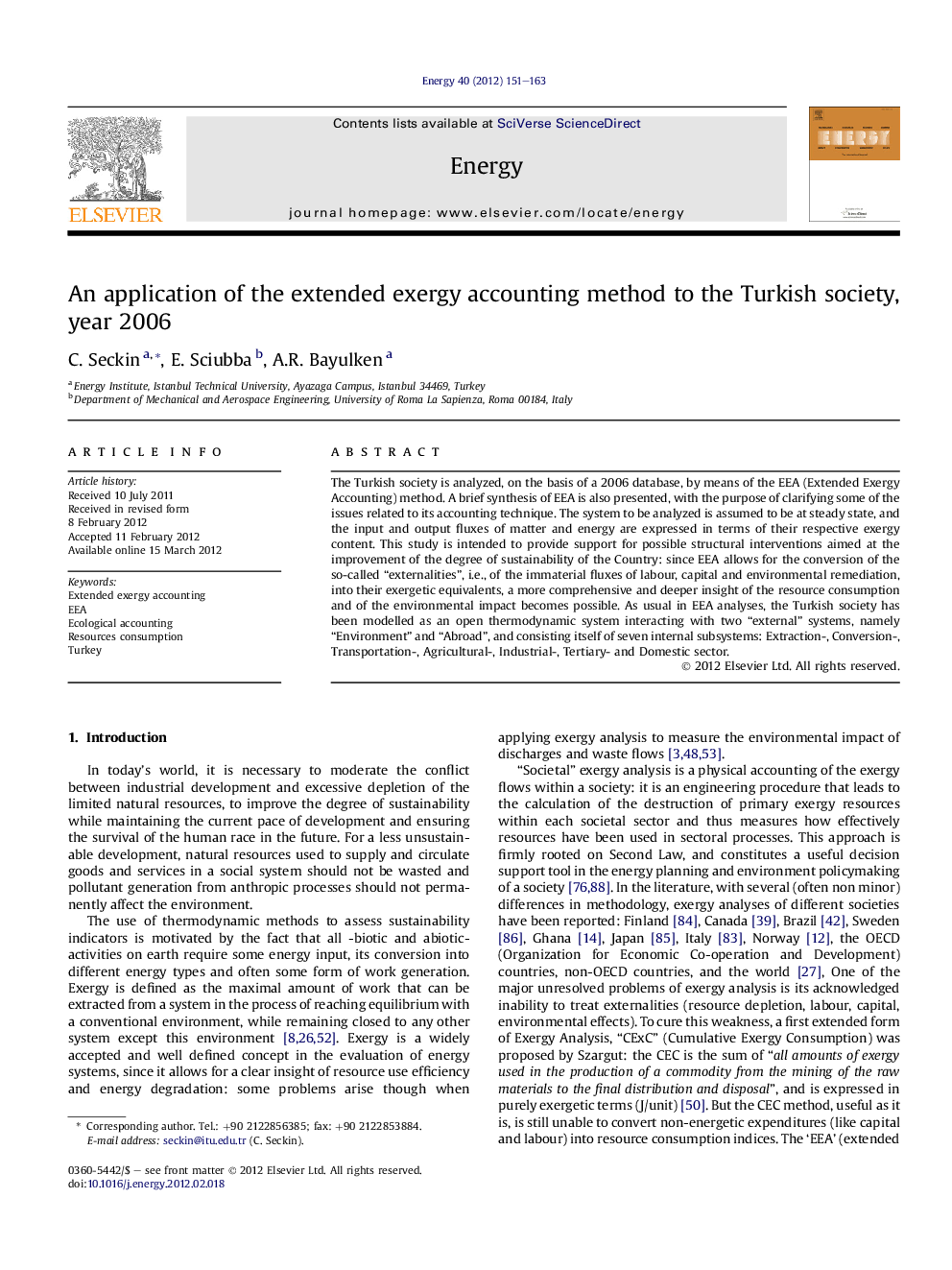| Article ID | Journal | Published Year | Pages | File Type |
|---|---|---|---|---|
| 1734085 | Energy | 2012 | 13 Pages |
The Turkish society is analyzed, on the basis of a 2006 database, by means of the EEA (Extended Exergy Accounting) method. A brief synthesis of EEA is also presented, with the purpose of clarifying some of the issues related to its accounting technique. The system to be analyzed is assumed to be at steady state, and the input and output fluxes of matter and energy are expressed in terms of their respective exergy content. This study is intended to provide support for possible structural interventions aimed at the improvement of the degree of sustainability of the Country: since EEA allows for the conversion of the so-called “externalities”, i.e., of the immaterial fluxes of labour, capital and environmental remediation, into their exergetic equivalents, a more comprehensive and deeper insight of the resource consumption and of the environmental impact becomes possible. As usual in EEA analyses, the Turkish society has been modelled as an open thermodynamic system interacting with two “external” systems, namely “Environment” and “Abroad”, and consisting itself of seven internal subsystems: Extraction-, Conversion-, Transportation-, Agricultural-, Industrial-, Tertiary- and Domestic sector.
► Extended Exergy Accounting Application to Turkish society 2006. ► Exergy transfers between sectors, environment and abroad. ► Exergetic equivalent of labour and capital fluxes. ► Environmental remediation cost computing for different sectors in Turkey. ► Sectoral efficiencies.
